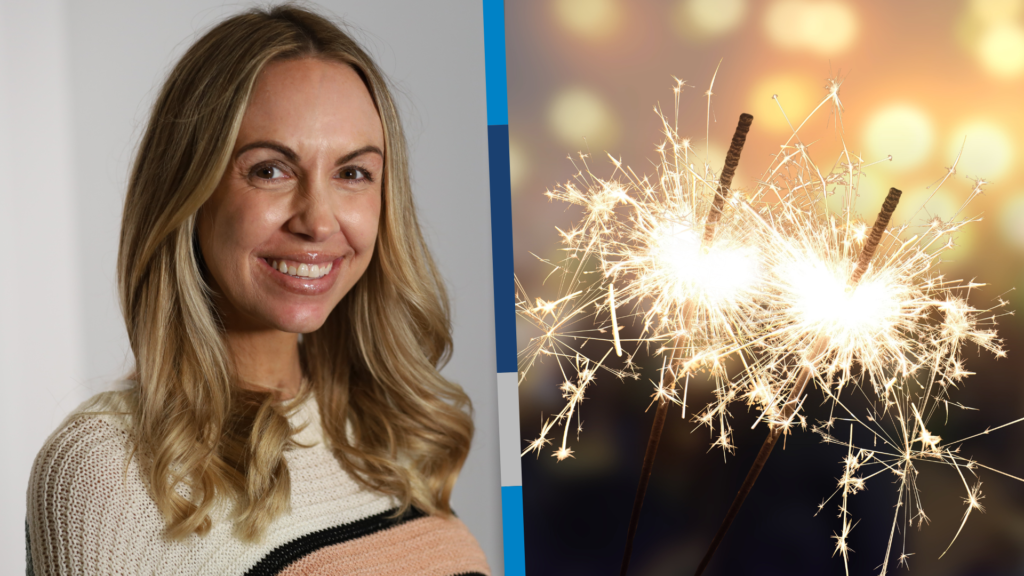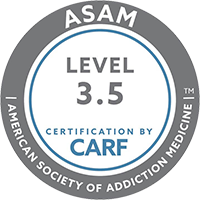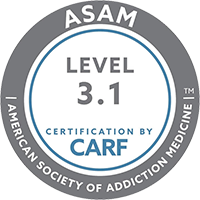
New Year’s Eve is upon us, signifying hope as we look ahead to making positive changes in our lives with new commitments. However, New Year’s Eve, coupled with just coming off the busy Thanksgiving and Christmas holidays, can be difficult for those new in recovery from substance use disorders.
The celebration aspect of our culture is to go out to a party and partake in drinking activities–even if it is ust an “innocent glass of champagne at the ball drop.”
But for many in recovery, drinking a glass of champagne can set off a craving that will last well beyond the ball drop at midnight.
So how do we avoid these challenges in order to start the New Year fresh AND healthy? Below are some ideas of how you can get through the night without taking a drink and still (gasp) have plenty of fun!
1. Host a sober New Year’s Eve party.
Rather than going to parties that will likely have alcohol, you can host your own alcohol-free gathering. Invite friends and/or family who you know will not mind spending the night sober. It’s even better if they are friends who are also in recovery.
To keep the night as stress-free as possible, keep your guest list small and make it a potluck-style party! Have everyone bring one plate/dish, appetizer, and alcohol-free drink. Think sodas, sparkling water, or juices! You can play board games, watch a movie, talk, or listen to music. Keeping your guest list small will reduce the chance of someone ignoring or overstepping the boundaries you’ve set.
Again, especially if you are newer to recovery, it’s important that all your invitees understand this will be a night of sober fun. While these conversations may not be easy at first, setting expectations and boundaries before the night approaches will ensure everyone is on the same page.
2. Spend the night with a group of sober friends.
If you cannot host a sober party, why not plan a night out with some of your sober friends? Make dinner reservations early in the evening (it does not need to be fancy), or go somewhere you can walk in without the hassle of the new year’s crowd. After dinner, try a movie theater, bowling alley, or arcade. Remember, you are more likely to stay sober and in the right frame of mind when surrounded by a group of supportive individuals working towards the same thing as you.
3. Bring your favorite non-alcoholic drink with you.
Most parties will have non-alcoholic options like water and soda. However, bringing your favorite non-alcoholic beverage can help set you up for a successful evening and even minimize those uncomfortable conversations and questions about why you’re not drinking.
4. Make short appearances.
There may be no way out of attending a party (work event, family, etc.), but that doesn’t mean you have to stay the whole time–especially if it will put your recovery at risk. Whether or not you tell the host your reason for leaving, you are under no obligation to stay longer than necessary. By showing up, greeting and thanking the hosts, and conversing with a few people you know, you can make a brief appearance at a party without staying longer than you feel comfortable.
Consider making plans with a group of your sober friends and/or family so you have a safe place to go afterward. This will bring you back to your comfort zone, with a group of individuals who understand where you’re coming from.
5. DO NOT spend New Year’s Eve by yourself.
Many people with substance use disorders struggle in isolation. Spending New Year’s Eve alone can be one of the most dangerous things for a person in early recovery. In fact, for some, spending New Year’s Eve alone can almost be as triggering as attending a party where everyone drinks.
When there is no one around you to hold you accountable, it can be very easy to listen to the voice in your head and give in to the cravings, pressures, and temptations. Whatever you do, do not spend New Year’s Eve alone.
- Find at least one friend to spend time with you,
- Attend a 12-step meeting
- Call your sponsor
- Find a church or volunteer opportunity.
Getting outside of yourself and your head while focusing on other people in need can be an excellent solution when faced with a potential night alone.
6. Keep it simple, and apply structure.
At the end of the day, holidays and New Year’s Eve can be difficult for anyone, even if not in recovery. There is a lot of pressure that comes along with this time of year.
Whether you are new in recovery or have 10 years in, try to keep it simple. Apply as much structure as you can during the holidays and plan out your day(s) ahead of time. If it helps, physically write out your schedule the day before. This can really help you see what is planned for the following day, where your time gaps are, and where you may have a lack of balance. Seeing the schedule written out can allow you to make changes or rearrange it as needed. In early recovery, some may not know what to do with themselves when they have downtime, which can lead to bad outcomes. Scheduling out your days can help avoid this.
If you or a loved one are struggling with a substance use disorder, please know that help is available. With over 30 programs in 21 Eastern and Central Kentucky counties, ARC has beds available today for those who are seeking treatment for a substance use disorder. Contact us at arccenters.com or call 888.351.1761 and be connected to one of our intake specialists today.


